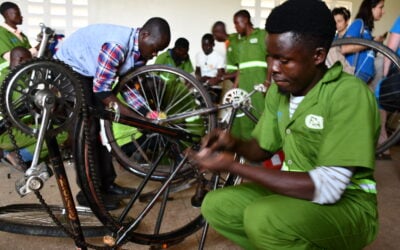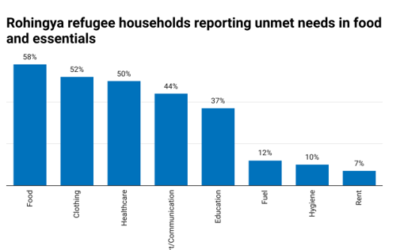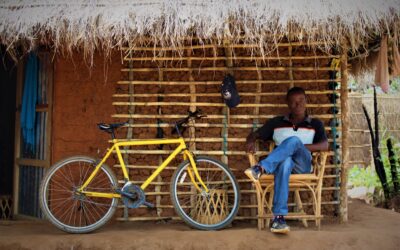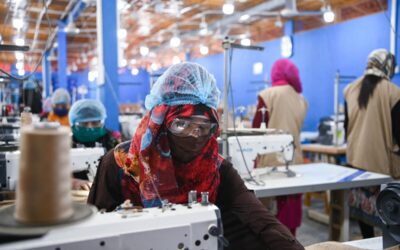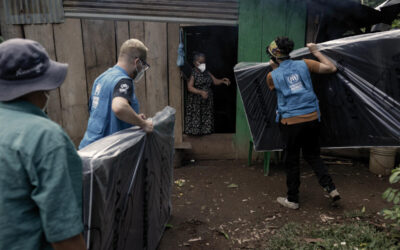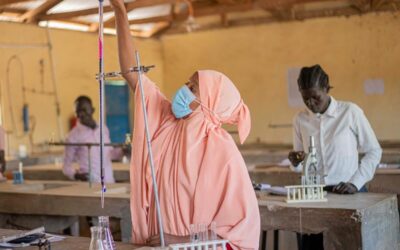Data Blog
Advancing the collection and use of data to inspire solutions for forced displacement
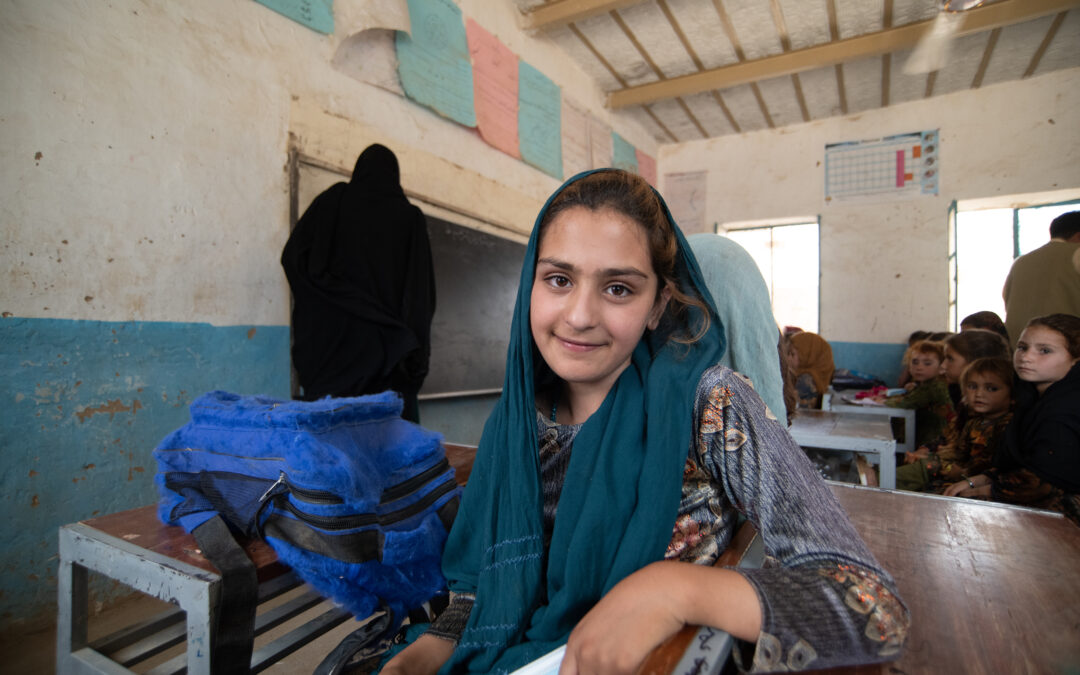
Transforming lives through education: a brighter future for refugee children
Imagine a world where every child, regardless of their circumstances, has the chance to learn, grow, and succeed. For refugee children, education is not just a right; it’s a pathway to self-reliance. Over the past decade, we’ve seen a global movement recognizing the urgency of integrating refugee children into national education systems as swiftly as possible. Yet, the reality is stark: many refugee children are still missing out on this vital opportunity. Around a third of primary school-aged refugee children remain out of school (UNHCR, 2023). It’s time to change that.
Understanding successful social and economic integration – an example from Uganda
A UNHCR study in Uganda proposes stronger action linking youth to the labour market, among other policy steps to improve outcomes for refugees and Ugandan host communities.
Notable chart: Even with humanitarian assistance, Rohingya refugees face shortages in food and essentials
More than half of Rohingya refugees in Cox’s Bazar face shortages in food and essentials even after receiving humanitarian assistance.
With all eyes on Ukraine, research offers insights from the world’s other 86 million forcibly displaced
The second Research Conference on Forced Displacement examined the latest evidence on issues including internal displacement and returnees.
Las personas desplazadas en México se enfrentan a una mayor inseguridad debido a la COVID-19, siendo la población hondureña y salvadoreña la que corre mayor riesgo
Por Giovanni Lepri, Representante de ACNUR en México, Theresa Beltramo, Economista Sénior, ACNUR, y Craig Loschmann, Economista, ACNUR Américas Un niño refugiado hondureño, de once años de edad, sigue una lección escolar con su teléfono celular en su casa en el norte...
Displaced persons in Mexico face heightened insecurity due to COVID-19, with Hondurans and Salvadorans most at risk
The survey shows that displaced Honduran and Salvadoran households are notably worse off in nearly all measures compared to the Venezuelan population and host community, a fact that must be taken into consideration when designing public policies and programmes for these populations.
Rising role of impact evaluations in evidence-based programming for forcibly displaced persons and host communities
A growing body of impact studies are providing rich insights on the effectiveness of interventions in forced displacement settings and ways to undertake rigorous evaluations in these settings.
Nuevos datos de alta frecuencia evidencian el gran impacto de la COVID-19 en los medios de vida y la inseguridad alimentaria en Costa Rica
Los resultados de la encuesta confirman los diagnósticos operacionales y proporcionan evidencia crítica sobre las áreas en las que se debe incrementar el enfoque programático: medios de vida, eliminación de la inseguridad alimentaria y fortalecimiento del acceso a los servicios esenciales.
New high-frequency data highlights COVID-19’s major impact on livelihoods and food insecurity in Costa Rica
High-frequency surveys back up UNHCR’s operational assessment that displaced persons need more support to overcome socioeconomic obstacles while seeking refuge in Costa Rica.
Compelling evidence that the graduation approach promotes economic and social integration in displacement settings: the case of Mozambique
Formative evidence from the Maratane Camp is particularly impactful during this economically volatile time as the global community searches for programmes that help build resilience among vulnerable poor households.
Solutions to forced displacement are incomplete without gender dimensions
Governments, humanitarian actors, local authorities, and development actors must continue to prioritize gender inequality in the myriad displacement and fragile settings to ensure equitable and effective protection responses and inclusive policies.
About the blog
The UNHCR Data Blog brings attention to data and research on protecting the rights and wellbeing of people forced to flee. It is also a forum to discuss research innovations in data-scarce forced displacement settings.
Useful links
UNHCR Data Transformation Strategy 2020 – 2025
UNHCR Socioeconomic Data and Analysis
Guidance on Registration and Identity Management
Registration and Identity Management at UNHCR
Socioeconomic Assessment Toolkit
Orientation for the early stages of planning a socioeconomic survey
Guidance on sampling household level surveys from UNHCR proGres registration data

